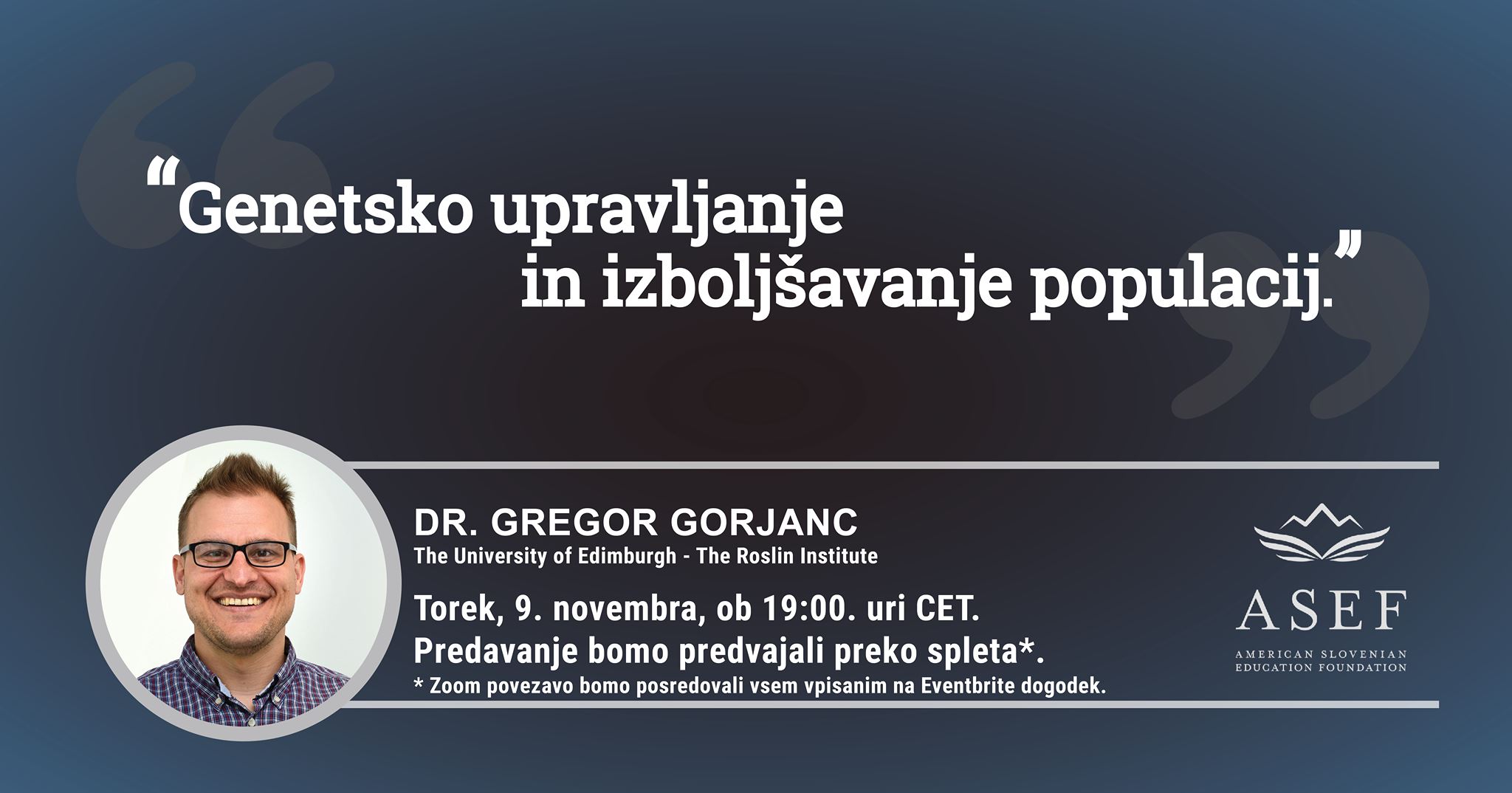
Dr. Gregor Gorjanc: Genetic Management and Population Improvement
The American Slovenian Education Foundation (ASEF) is organizing a new ASEF Speaker Series event. This time prof. dr. Gregor Gorjanc will deliver a lecture titled: “Genetic management and population improvement”.
Please register for the lecture by 6:00 PM CET by November 9. All entrants will receive a Zoom link to their email address before the event.
ABSTRACT
At the Roslin Institute of the University of Edinburgh, we are researching how to manage and improve populations using statistics, genetics, and selection. In the presentation I will describe the basic concept of our field and describe one example of the use of statistics, selection and genetics. As an example of the use of statistics, I will describe the use of phenotypic and genomic data to estimate the genetic values of cattle and how these estimates are used in practice. As an example of the use of selection, I will describe the optimization of an insect breeding program specific to the black military fly used for protein production. As an example of the use of genetics, I will describe “gene drive” modeling to stop the spread of gray squirrels in the UK.
BIOGRAFY
Gregor Gorjanc works as an assistant professor in the field of data innovative technologies for AgriTech at the Roslin Institute (University of Edinburgh). It is also affiliated with the Global Academy of Agriculture and Food Safety (University of Edinburgh), the Statistical Center (University of Edinburgh) and the Biotechnical Faculty (University of Ljubljana). He studied animal studies at the undergraduate level and genetics at the doctoral level at the Biotechnical Faculty (University of Ljubljana) in Slovenia. He is passionate about holistic (population) approaches and likes to combine different data sciences, genetics / genomics and breeding methods to solve research and applied problems. Its specialty is the ability to research on a variety of species, including livestock, pets, plants, fish, insects, and even some whose findings later spill over into the human population.



